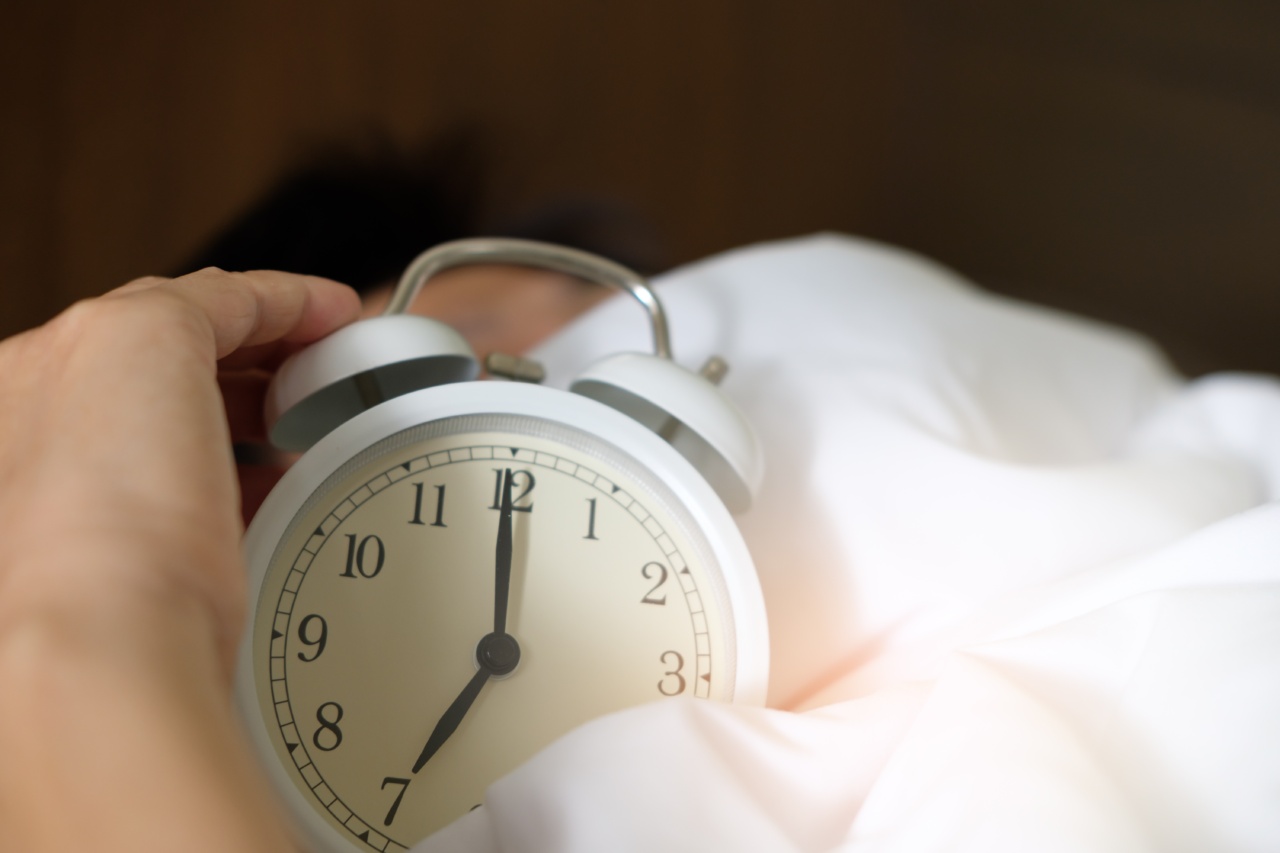Waking up before your alarm clock can be a common occurrence for many people. While it may seem like a disruption to your sleep routine, it can actually reveal interesting insights about your sleep patterns and overall health.
In this article, we will explore what it means when you wake up before your alarm clock and what you can do to improve your sleep quality.
1. Natural Body Clock
One possible reason for waking up before your alarm clock is your natural body clock, also known as the circadian rhythm. Your circadian rhythm is an internal process that regulates your sleep-wake cycle.
It aligns with the 24-hour cycle of day and night and is influenced by external factors such as light exposure.
When you consistently wake up before your alarm clock, it may indicate that your body has adapted to a regular sleep schedule.
This can be a positive sign as it shows that your body has found its optimal rhythm and is naturally waking up at the right time for you.
2. Sufficient Sleep Duration
Another reason for waking up before your alarm clock is that you may have achieved sufficient sleep duration. If you consistently wake up feeling refreshed and revitalized, it could mean that you are getting an adequate amount of sleep.
Most adults require 7-9 hours of sleep per night to function optimally.
If you are consistently waking up before your alarm clock and feeling rested, it may be an indication that your body has received the sleep it needs, allowing you to wake up naturally.
3. Sleep Quality
Waking up before your alarm clock can also be an indication of good sleep quality. Quality of sleep is just as important as the duration.
Even if you sleep for the recommended number of hours, if the sleep is disrupted or of poor quality, you may not wake up feeling refreshed.
When you wake up before your alarm clock and feel well-rested, it suggests that you have experienced restorative sleep.
This means that you have gone through the different stages of sleep, including the crucial deep sleep and REM (rapid eye movement) sleep cycles, which are essential for physical and mental rejuvenation.
4. Light Exposure
Light exposure plays a significant role in regulating our sleep-wake cycle. Exposure to natural light during the day and minimal exposure to artificial light in the evening helps maintain a healthy circadian rhythm.
If you consistently wake up before your alarm clock, it could mean that your body is sensitive to natural light cues. For example, sunlight coming in through your window in the early morning can signal your body to wake up naturally.
This is a positive sign of a healthy circadian rhythm.
5. Reduced Anxiety and Stress
Anxiety and stress can significantly impact the quality of our sleep. If you find yourself waking up before your alarm clock and feeling calm and relaxed, it may indicate that you have low levels of anxiety and stress in your life.
Chronic stress can disrupt the sleep-wake cycle and lead to difficulties falling asleep or staying asleep.
If you are consistently waking up before your alarm clock without any feelings of stress or anxiety, it suggests that you are experiencing restful sleep and have managed to keep stress levels under control.
6. Health Conditions
In some cases, waking up before your alarm clock may be associated with underlying health conditions.
For example, sleep apnea, a disorder characterized by interrupted breathing during sleep, can cause people to wake up abruptly before their intended wake-up time.
If you consistently wake up feeling tired despite waking up before your alarm clock, or if you experience other symptoms such as snoring or excessive daytime sleepiness, it is essential to consult a healthcare professional for a thorough evaluation.
7. Age and Hormonal Changes
As we age, our sleep patterns and requirements change. Older adults may find themselves waking up earlier than they used to. This change is a natural part of aging and is influenced by hormonal changes, lifestyle factors, and overall health.
If you are an older adult and waking up before your alarm clock has become a regular occurrence, it may be helpful to adjust your sleep schedule accordingly.
Going to bed earlier to compensate for the early wake-up time can help ensure you still get the necessary amount of sleep.
8. Sleep Environment
The environment in which you sleep can greatly impact the quality of your sleep. Factors such as room temperature, noise levels, and the comfort of your mattress and pillows can influence your ability to stay asleep until your desired wake-up time.
If you consistently wake up before your alarm clock, it may be worth assessing your sleep environment. Ensure your bedroom is cool, dark, and quiet, and invest in a comfortable mattress and pillows that support your sleep posture.
9. Establishing a Consistent Sleep Routine
Waking up before your alarm clock can be a positive sign, indicating that you have established a consistent sleep routine.
However, if you are struggling with sleep disturbances or find it difficult to wake up naturally, there are steps you can take to improve your sleep quality.
Try going to bed and waking up at the same time every day to train your body to follow a consistent sleep-wake cycle. Avoid consuming stimulants such as caffeine or engaging in stimulating activities close to bedtime.
Create a relaxing bedtime routine to signal to your body that it is time to wind down and prepare for sleep.
10. Seeking Professional Help
If you consistently wake up before your alarm clock and experience difficulties falling asleep or staying asleep, it may be beneficial to seek professional help.
A sleep specialist or healthcare professional can evaluate your sleep patterns, identify any underlying sleep disorders, and provide appropriate treatment options.






























